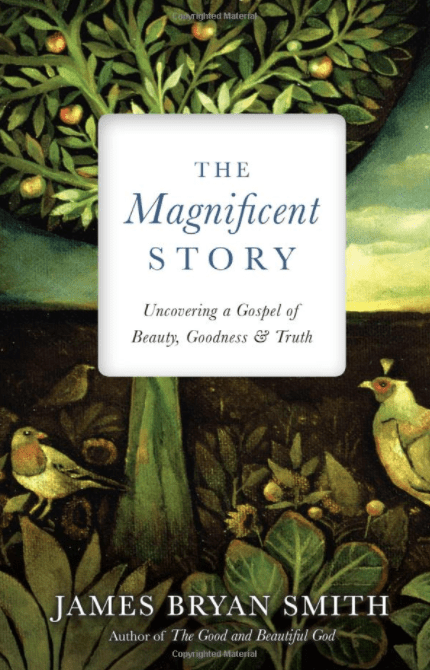 Many learn that the best faith is certaintist faith, that doubt is the worst kind of failure, and that when in doubt one should pluck up the courage to believe. Greg Boyd, in what will surely become a standard point of departure for conversations about faith and doubt, Benefit of the Doubt: Breaking the Idol of Certainty, calls the problem “certainty-seeking faith” and contends there are any number of problems with this kind of faith. Before the problems, a brief description of “certainty-seeking faith.”
Many learn that the best faith is certaintist faith, that doubt is the worst kind of failure, and that when in doubt one should pluck up the courage to believe. Greg Boyd, in what will surely become a standard point of departure for conversations about faith and doubt, Benefit of the Doubt: Breaking the Idol of Certainty, calls the problem “certainty-seeking faith” and contends there are any number of problems with this kind of faith. Before the problems, a brief description of “certainty-seeking faith.”
What do you see as the problems with certainty-seeking faith? Or do you think it is a problem? Is faith certainty? Or is certainty faith no longer faith?
The more psychological certain you are, the stronger your faith; the less certain, the weaker your faith. If something is not happening right — like a healing — the problem is weak faith. So he uses the image of the mallet slammed down at the county fair onto a device that tosses a ball up a pole — and if you hit it hard enough the bell will ring. Some think of faith this way: if you have enough of it, the bell of certainty and success rings. (Good analogy.) If this is the case, there is no one with enough faith to bring peace to the Middle East, an end to AIDS or healing to someone for whom you and others are praying. Boyd will present a more biblical understanding of faith, but that’s for a later post.
When we doubt are we failing to believe or is our faith being challenged?
Boyd’s argument is that God gave us minds; when our minds discover something that doesn’t fit the solution is to think through it; if we don’t think through it but bury that which doesn’t fit, we create cognitive dissonance; that’s painful. Some pound the mallet harder hoping to drive the faith ball higher; others think. Boyd says if we don’t think we don’t have biblical faith. We are in the quest for “certainty-seeking faith.” He’s right (in most cases).
Here are the eight problems with not thinking rationally but instead of plucking up courage to believe something we have doubts about. (He does mention the amygdala [seat of “fight or flight” in the brain] here, and there’s no doubt that certainty-seeking faith is at times amygdala-fired faith and not genuine faith. Hence why some get so mad when someone doubts what they are believing, showing the “believing” one’s faith is actually under challenge and “fight” is the only way … instead of backing up in the brain to thinking processes. Anger-shaped faith is amygdala-shaped faith.)
1. A virtue in irrationality: rational people sort out evidence, etc, and then conclude reasonably. Some though create a virtue of believing in spite of the evidence. (Science faith discussions are noted by this.) Certainty-seeking faith seeks for more certainty than evidence we know — and may choose to avoid, ignore, or suppress — permits.)
2. It creates an unChristlike God: Boyd always asks what kind of God our faith pictures, and if that God is the God we know in Jesus Christ. The certainty-seeking God is what Boyd calls an “Al Capone God,” one that thinks if we have enough faith God will heal, otherwise God takes them out.
3. Certainty-seeking faith is magic, not faith. It believes if we have enough faith … and now faith is magical, it is behavior that triggers the deity’s action on our behalf. It is doing something that creates favor with God and divine powers.
4. It is inflexible. It is an all-or-nothing package; doubt any of it and you lose the whole. Each bit represents the whole.
5. Certainty-seeking faith creates a learning phobia. Or, avoid studying some topics for fear of where it might lead your mind; be anti-intellectualist and populist for fear the intelligent approach will create intellectual problems. This is a phobia of learning. This is not right and it is not the way God made us. Boyd is more afraid we don’t use our minds than that we use them too much! To learn you must suspend some of what you believe; to get behind something you must get behind it; all genuine learning means some bracketing in order to examine.
6. It leads to hypocrisy. Frequently we assume we are right and that others are “arrogant.” What this often reveals is hypocrisy: namely, we are arrogant about our beliefs and unwilling to examine them just as we are accusing the so-called arrogant of. It is good, he argues, for Christians and non-Christians to question their beliefs.
7. Certainty-seeking faith is dangerous — to the world and to others. Certaintist faiths create murderous wars and trade in violence often.
8. Certainty-seeking faith is actually afraid of faith. It is not seeking truth but seeking the feeling of certainty. This is a self-serving quest.














